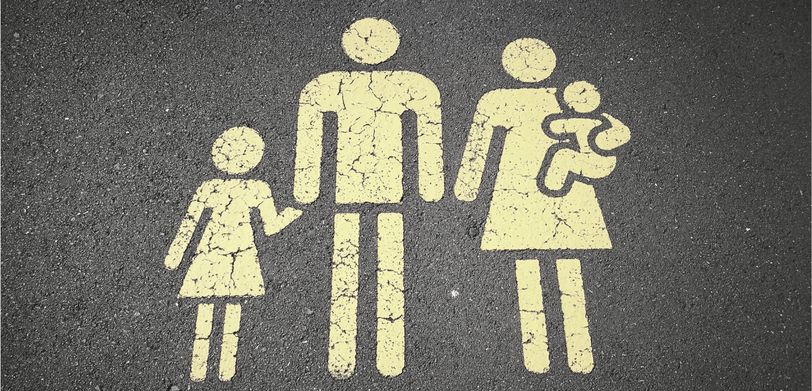Child custody and visitation rights in Italy
In Italy, child custody and visitation rights matters are governed by the Italian Civil Code, European Union regulations, and various international conventions.
Italy is a contracting party to the following key international treaties:
The Hague Convention of 25 October 1980 on the Civil Aspects of International Child Abduction; and
The Hague Convention of 19 October 1996 on Jurisdiction, Applicable Law, Recognition, Enforcement, and Cooperation in Respect of Parental Responsibility and Measures for the Protection of Children.
Jurisdiction
Jurisdiction—meaning the legal authority to hear and decide a case—over matters concerning parental responsibility with the Italian courts when:
The child is habitually resident in Italy at the time the proceeding is initiated (general jurisdiction) or
The child’s habitual residence cannot be determined, and no other court has jurisdiction, but the child is present in Italy at the time the proceeding is initiated (residual jurisdiction).
There are exceptions to these rules in cases involving the lawful transfer of the child, international child abduction, or other special circumstances.
Applicable Law
The court that has jurisdiction will generally apply its national law to the matter.
Accordingly, the law applicable to issues of parental responsibility and custody rights is:
The law of the country where the child is habitually resident; or, if that residence changes,
The law of the new country of habitual residence.
Exceptionally, when it is deemed to be in the child's best interests, the court may apply—or consider—the law of another country with a close connection to the situation.
Italian law
Under Italian law, the exercise of parental responsibility is regulated in cases of separation, divorce, or dissolution of marriage. It extends to children born out of wedlock, who enjoy complete legal protection.
Italian law does not grant preferential custody rights to either parent.
Every child has the fundamental right to maintain a meaningful and ongoing relationship with both parents, even if the parents reside in different countries.
Without a formal custody order, both parents have equal rights, and either parent may keep the child in their care.
When custody is litigated, the Italian courts must decide based solely on the child's best interests.
As a general rule, joint legal custody is favored and commonly awarded by Italian courts. This reflects the statutory principles that:
Both parents should be equally involved in the child’s upbringing (principle of co-parenting);
The child should maintain frequent and meaningful contact with both parents and continue to benefit from their shared parental responsibilities.
An exception to joint custody may be made if such an arrangement would be contrary to the child’s best interests, due to serious conflict, incapacity, or other factors negatively impacting the child’s well-being.
Joint legal and physical custody in Italy

In Italy, joint legal custody requires that parents jointly make decisions concerning their child’s health, safety, education, and overall well-being.
When joint custody is granted, neither parent may unilaterally make major decisions affecting the child’s life—such as those relating to the child’s residence, healthcare, education, or significant extracurricular activities—without involving the other parent and obtaining their consent.
If disputes arise between the parents regarding these matters, the issue must be brought before the Court, which will decide based on the child's best interests.
Physical custody may also be shared; however, particularly when the child is very young, it is common for the child to reside primarily with one parent, typically the mother.
The parent with whom the child primarily lives is generally responsible for day-to-day care and routine decisions, while the other parent is granted visitation rights.
These rights typically follow a schedule agreed upon by the parties or, if necessary, established by the Court.
The non-residential parent has the right to maintain a meaningful relationship with the child and to spend time with them regularly. The Court must resolve the dispute if the parents cannot agree on the visitation schedule or other practical matters.
In some cases, the Court may order a “nesting” arrangement, whereby the child remains in the family home, and the parents alternate residing there with the child.
Italian Courts routinely award joint custody following the principle of bi-parental responsibility, which ensures that children continue to benefit from both parents' active and balanced involvement following a separation or divorce.
Sole custody in Italy
In a limited number of cases, the Court may find that one parent is unfit or unable to exercise parental responsibility, and may therefore award sole custody to the other parent.
When sole custody is granted, the custodial parent assumes both legal and physical custody of the child. This parent is responsible for meeting all of the child’s needs and has the exclusive authority to make all major decisions concerning the child’s health, education, residence, and general welfare.
The non-custodial parent may still be granted visitation rights, although these may be restricted or supervised by Social Services if deemed necessary for the child’s safety or well-being.
It is important to note that being denied custody does not release the non-custodial parent from their obligation to provide financial support. Child support remains a legal duty regardless of custodial status.

